Don't wanna be here? Send us removal request.
Text
What Does the Test Measure?
A complete blood count (CBC) is a common medical test that is used to measure the number and types of cells in your blood. It can help detect conditions such as anemia, infections, and other diseases. The CBC measures red blood cells, white blood cells, and platelets. Red blood cells are responsible for carrying oxygen to all parts of the body. White blood cells fight off infection, while platelets help with clotting of the blood when you have a cut or injury. The CBC also measures hemoglobin levels which give an indication of your overall health and helps provide insight into any underlying health problems. This test can also be used to assess how well certain treatments are working or if any side effects are present.
Do you want to find out what's going on inside your body? A complete blood count (CBC) is a simple test that can help you gain insight into your overall health. This blog post will explain what the CBC is, how it works, and why it’s important for your long-term health.
What is a Complete Blood Count?
A complete blood count (CBC) is a common test used to help diagnose and monitor various conditions, including infections, anemia, and leukemia. It measures the number of red blood cells, white blood cells, platelets, and other components that make up your blood. The results can tell healthcare providers a lot about your health and any underlying conditions you may have. A CBC can also be used to evaluate how well certain treatments are working. A CBC is usually done as part of a routine checkup or when someone has symptoms that need to be investigated further.
0 notes
Text
Complete Blood Count
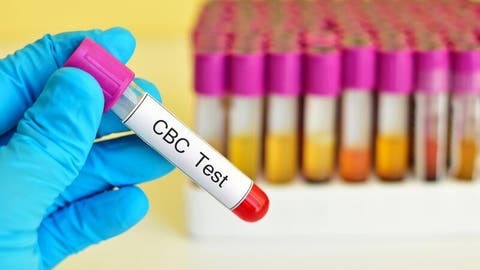
What Is a Complete Blood Count?

Benefits of a Complete Blood Count
A complete blood count (CBC) is an important diagnostic and screening tool used by healthcare providers to evaluate a patient’s overall health. It can help detect a variety of conditions, such as infections, anemia, diseases of the immune system, and more. The CBC measures the number, size, and types of cells in your blood. It looks at red blood cells, white blood cells, and platelets. Red blood cells carry oxygen throughout the body while white blood cells help fight infection. Platelets are responsible for helping with clotting when bleeding occurs.
A CBC can be done as part of a routine checkup to screen for problems or because someone isn't feeling well. An abnormal result from a complete blood count test can alert healthcare providers to potential issues that may need further investigation or treatment. It can also provide valuable information about how your body is functioning overall so that any changes that arise over time can be tracked and monitored accordingly.
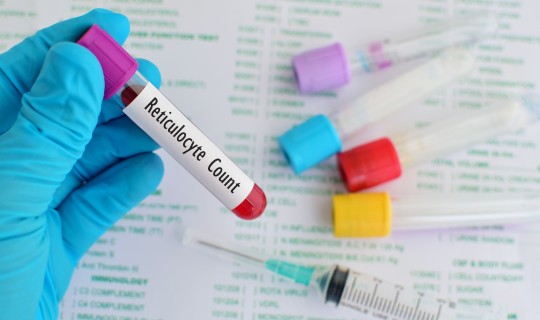
How Is the Test Performed?
A Complete Blood Count (CBC) is a common test performed by your healthcare provider to measure different parts and features of your blood. The CBC can help detect anemia, infection, inflammation, and many other disorders. To perform the test, a sample of blood is taken from your arm or finger and analyzed using an automated hematology analyzer that counts cells and collects information on their size and structure. It also measures the concentration of red blood cells, white blood cells, platelets, hemoglobin levels, hematocrit levels, mean corpuscular volume (MCV), mean corpuscular hemoglobin (MCH), mean corpuscular hemoglobin concentration (MCHC), and red cell distribution width (RDW). A CBC with differential is also known as a blood differential test because it includes further evaluation of the types of white blood cells present in the sample. This type of testing may be ordered as part of a routine exam or if there are signs or symptoms suggesting an underlying medical condition. To prepare for the CBC test, you should fast for 8-10 hours before having your blood drawn so that accurate results can be obtained. The skin at the puncture site will also be cleansed with antiseptic before taking a sample to reduce potential risk of infection.
0 notes
Text
What is the Beta hCG Blood Test?
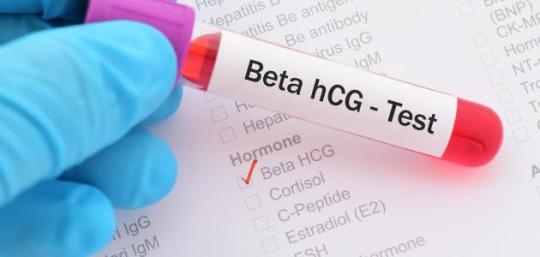
How to Prepare for the Test?
Preparing for the Beta hCG test is easy and straightforward. There is no special preparation needed before taking the test. It is recommended that you inform your doctor about any medications, allergies or medical conditions you may have prior to the test. The test can be performed with either a urine or blood sample, and it usually takes just a few minutes to obtain the results. During the test, you may experience some mild discomfort when having your blood drawn, but this should be minimal. After the test has been completed, you will receive your results shortly after. If it is positive, further tests may be necessary to confirm a pregnancy diagnosis.
0 notes
Text
What is a CRP Test
How is a CRP Test Performed?

Benefits of the CRP Test
A C-reactive protein (CRP) test is a simple blood test used to detect inflammation in the body. High levels of CRP may indicate an increased risk of heart problems and other serious medical conditions. A CRP result of more than 50 mg/dL is considered severe elevation, while results between 0.3–1.0 mg/dL are classified as slight or moderate elevations. Measuring your CRP levels is relatively inexpensive and could be recommended by your healthcare provider if they think you may have an infection or another condition that causes inflammation. Studies have shown that hs-CRP could be an important marker for predicting the risk of death or cardiovascular disease in apparently healthy people as well as those with existing conditions.
0 notes
Text
Who Should Get Tested for CA 125?

What is CA 125?

Who Should Get Tested for CA 125?
Cancer antigen 125 (CA125) is a protein found on most ovarian cancer cells that can help detect the presence of ovarian cancer. The CA-125 blood test measures the amount of this protein in your blood. It's used to monitor certain types of cancers, including ovarian cancer, and to track progress during and after treatment.
If you're at an average risk for developing ovarian cancer, then the CA-125 test is generally not recommended. However, if your doctor is concerned about possible symptoms or signs of ovarian cancer then they may order the test. Other situations where a CA-125 test may be ordered include when starting treatment for ovarian cancer, if a metastatic (spread) cancer has been discovered, or if symptoms persist or worsen despite other treatments.

What Conditions Does a High Level of CA 125 Indicate?
Cancer antigen 125 (CA-125) is a type of biomarker that is commonly used to detect the presence of ovarian cancer, as well as other conditions. A high level of CA-125 in the blood can indicate the presence of one or more conditions, including ovarian cancer. Other conditions that may be indicated by a high CA-125 level include endometriosis, pelvic inflammatory disease, and benign tumors. In some cases, a high CA-125 level may not indicate any condition at all and could be due to irritation or inflammation caused by another problem. Generally speaking, the normal range for CA-125 is between 0 and 35 units per milliliter (mL). However, if your doctor suspects you may have ovarian cancer or another condition associated with elevated levels of CA-125, they may order additional tests such as imaging scans or biopsies to confirm their suspicions.
0 notes
Text
What is a Complete Blood Count (CBC)?

Are you curious about your overall health? Are you looking for a way to get a better understanding of your body’s systems? If so, then a MCH blood test may be just what you need. In this blog post, we’ll cover the basics of the MCH test and how it can help you gain insight into your health.
When Should You Have a CBC Test?
A CBC (complete blood count) test is a type of medical test that measures the different components of your blood, such as red and white cells, platelets, hemoglobin, and other proteins. It is often used to diagnose or monitor many different health conditions. Your doctor may order a CBC if they suspect you have an infection, are anemic, or have some other health issue. It can also be used to monitor how well certain medications are working for you. If your doctor orders a CBC test for you, it’s important to follow their instructions carefully. They will tell you when and how to prepare for the test and what to expect during the procedure. After the results come back, your doctor can discuss any concerns they may have with you.
0 notes
Text
What Does an Elevated C-Reactive Protein Level Indicate?
Who Should Get Tested for C-Reactive Protein?
A C-reactive protein test is a blood test that measures the amount of C-reactive protein (CRP) in your body. CRP is a protein produced by your liver in response to inflammation. A high level of CRP indicates inflammation or an infection somewhere in your body. Other tests may be needed to determine exactly where the inflammation or infection is located.
Elevated levels of CRP can indicate a variety of health problems, including cancer, inflammatory bowel disease, lupus, rheumatoid arthritis, and tuberculosis. People with a family history of heart disease may also receive this test to see if they are at increased risk for cardiovascular disease. Additionally, doctors may order CRP tests for children who have signs of inflammation or infection.
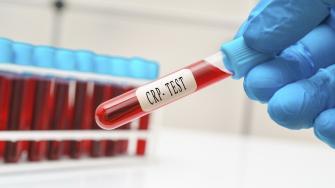
How is a C-Reactive Protein Test Performed?
What are the Normal Ranges of C Reactive Protein Levels?
C Reactive Protein (CRP) is a protein produced by the liver and released into the bloodstream in response to inflammation. It is used as a marker of inflammation, and its levels can be measured through a blood test. Normal CRP levels vary from lab to lab and depend on age, gender, and race. Generally, the normal range for CRP is less than 0.9 mg/dL or 8-10 mg/L, or lower if measured with high-sensitivity testing. Values higher than 0.3-1 mg/dL are considered minor elevations and may indicate infection, inflammation of the blood vessels, or major trauma. Values greater than 1 mg/dL indicate an elevated risk of cardiovascular disease (CVD). High CRP levels can also be caused by severe infection, poorly controlled autoimmune disease, or certain cancers.
0 notes
Text
What Is Testosterone?
If you've been feeling fatigued, have difficulty sleeping, or have been losing muscle mass, it may be time to consider a testosterone test. A simple blood test can tell you if your testosterone levels are lower than normal and help you take steps to get them back on track. In this blog post, we'll look at the importance of a testosterone test and what it can mean for your health.
What Is Testosterone?
Testosterone is a hormone that is produced mainly in the testicles of males and ovaries of females. It plays an important role in sexual development, muscle growth, bone health, and other bodily functions. Testosterone levels vary from person to person, but typically peak during puberty and decline with age. Low testosterone levels can cause decreased libido, infertility, depression, fatigue, and other symptoms. A simple blood test can measure your testosterone levels so you know if they are within a normal range or need to be addressed by your doctor. High testosterone levels may need to be treated with medication or lifestyle changes such as improved diet and exercise.
Types of Tests for Measuring Testosterone Levels
Testosterone is a hormone found in both men and women that plays an important role in the body. When levels of testosterone are lower than normal, it can lead to health issues such as low energy levels, reduced muscle mass and libido, and a weakened immune system. To diagnose these issues, doctors often order a testosterone test to measure the levels of this hormone in the blood.
There are three types of tests used to measure testosterone levels: total testosterone test, free testosterone test and bioavailable testosterone test. A total testosterone test measures both bound and free forms of this hormone in the blood sample. This is the most common type of test used by doctors for diagnosis. The free testosterone test measures only unbound or “free” forms of this hormone. The bioavailable testosterone test measures only those forms that are readily available to be used by tissues throughout the body.
Companies such as LetsGetChecked and Everlywell offer full hormone tests that measure not only your level of testosterone but also other hormones like cortisol and DHEA (dehydroepiandrosterone).
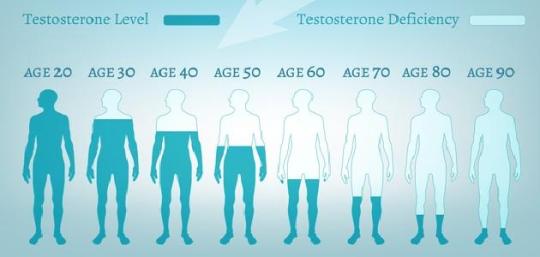
Normal Range for Men and Women
Testosterone is an important hormone for both men and women, and having normal levels of testosterone is essential for overall health. The normal range for total testosterone levels in adult men is between 270 to 1,070 ng/dL, depending on age. For adult women aged 19 and up, the normal range for testosterone levels is 8 to 60 ng/dL. Puberty can be a tricky period when it comes to healthy testosterone levels, as males have much higher levels than females at this stage. In general, males aged 19 years old and older should have between 240-950 ng/dl while females should have 15 to 70 ng/dL. If your testosterone levels are too low or high, you may experience symptoms such as fatigue or infertility. Doctors measure testosterone in nanomoles per litre (nmol/l) with a normal range from 9.2 to 31.8 nmol/l for males and 0.300 nmol/l or above for females being optimal ranges. It’s important to keep track of your own individual testosterone levels so that any changes can be monitored by your healthcare provider over time if necessary.
0 notes
Text
What are the Symptoms of Insulin Resistance?
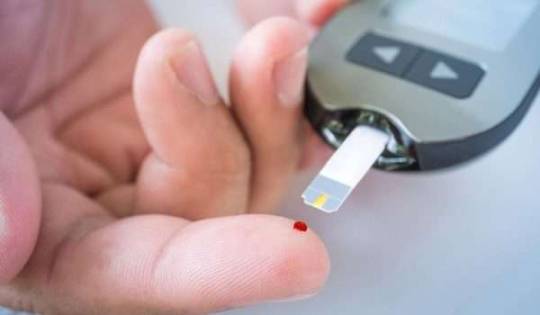
What are the Symptoms of Insulin Resistance?
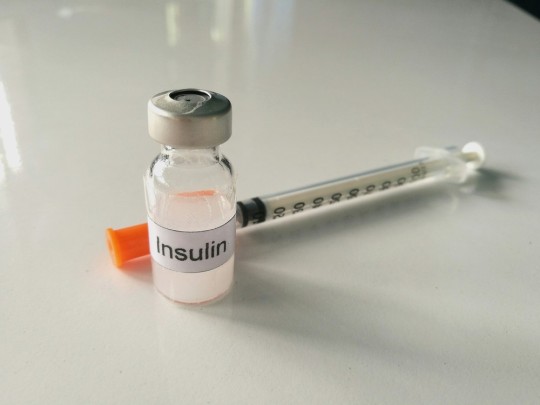
Who Is at Risk for insulin resistance test?
insulin resistance test is a condition where your body’s cells don’t respond properly to insulin, the hormone that helps regulate your blood sugar. If you have insulin resistance, it can increase your risk of prediabetes, type 2 diabetes and other serious health problems such as heart attacks and stroke.
People who are more likely to develop insulin resistance or prediabetes include those with genetic or lifestyle risk factors. These include having a family history of diabetes, being overweight, having high cholesterol or triglyceride levels, having high blood pressure, and not getting enough physical activity.
If you think you may be at risk for insulin resistance or prediabetes, talk to your doctor about getting tested. Tests that may be used to diagnose insulin resistance include fasting glucose tests which measure blood sugar levels after an overnight fast; a 2-hour glucose tolerance test which measures how well the body processes sugar; and an A1C test which measures average blood sugar levels over the past three months.
Making lifestyle changes is key in managing insulin resistance and reducing your risk of developing type 2 diabetes. This includes eating a healthy diet with lots of fruits, vegetables and whole grains; exercising regularly; quitting smoking; and maintaining a healthy weight.
Diagnosing Insulin Resistance
Insulin resistance is a condition in which the body does not respond properly to insulin, a hormone produced by the pancreas. It is marked by high levels of glucose and insulin in your bloodstream, and can lead to many other complications if left untreated. Diagnosing insulin resistance is difficult as there isn't a routine test for it, however it can be detected through specific blood tests and glucose tolerance tests.
A fasting plasma glucose test measures your blood sugar after you haven't eaten for 8 hours. If the result is 99mg/dL or below, this may indicate that you have insulin resistance. An Insulin tolerance test (ITT) involves administering an IV bolus of regular insulin followed by a series of blood sugar tests over two hours to measure how quickly your plasma glucose level drops after taking the steroid. If the results show that your plasma glucose level drops slowly then this could indicate that you have IR.
In clinical practice, diagnosis of IR syndrome relies on clinical findings as well as laboratory tests such as these two mentioned above. Therefore, if you are concerned about having IR then it is best to speak to your doctor who will be able to provide more accurate advice on testing and treatment options available to you.
0 notes
Text
complete blood count test report

What is a complete blood count test?
The CBC test is also used to measure the concentration of glucose, hemoglobin, and white blood cells.
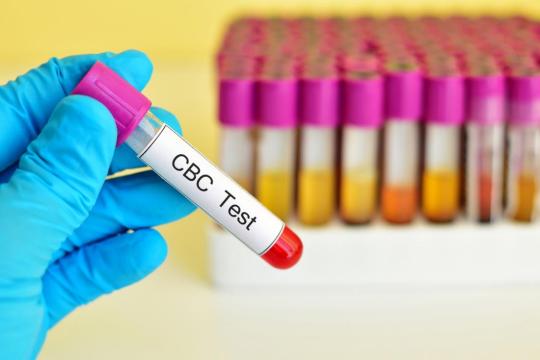
complete blood count test report
A complete blood count (CBC) test is an important tool for healthcare providers to assess overall health and detect a wide range of disorders, diseases, and conditions. It analyzes red blood cells, white blood cells, and platelets in the bloodstream. It helps doctors find out if there are any reductions or increases in these cells which can indicate different conditions. The CBC test is also used to measure the concentration of glucose, hemoglobin, and white blood cells. This information can help diagnose problems like anemia or infections. Additionally, it helps monitor certain medications' effectiveness or detect disease-related changes in the body. Overall, a complete blood count is essential for healthcare providers to accurately evaluate a patient's health and make informed decisions about diagnosis and treatment.
0 notes
Text
What is the Thyroid Gland?

The Role of the Thyroid Gland
The thyroid gland is a small butterfly-shaped gland located in the front of your neck. It plays a vital role in the body by producing hormones that regulate metabolism, breathing, heart rate, and more. Thyroid hormones are made up of two main types: thyroxine (T4) and triiodothyronine (T3). These hormones control how your body uses energy from food and also play an important role in growth and development. Too much or too little of these hormones can cause health problems such as fatigue, weight gain/loss, depression, anxiety, and more. It is important to keep your thyroid healthy by eating a balanced diet and exercising regularly to ensure proper hormone production. If you experience any signs or symptoms related to abnormal thyroid function it is best to consult with your healthcare provider for diagnosis and treatment options.
0 notes
Text
health check up packages dubai

Introduction to health check up packages dubai
Are you looking for a comprehensive health check-up in Dubai? At Aster, we offer a range of health screening packages that can provide you with an overview of your current health status. Our packages are designed to detect any abnormalities, and provide you with the necessary information and advice to help maintain your overall wellbeing.
Aster's comprehensive health check-ups provide detailed examinations, including pathology and radiological tests, clinical exams, mammograms and breast ultrasounds. We also provide hormone replacement therapy counseling for those who need it. All of our packages are tailored to each individual's needs and budget, ensuring that no matter what your requirements may be, we have something that suits you.
We understand the importance of preventive healthcare and believe that most life-threatening illnesses can be prevented by regular check-ups. That’s why we offer a variety of affordable packages designed with both general and specific requirements in mind. Our Essential Health Check-Up for 40+ Year Old Women package is only AED 3,000 – providing excellent value for money!
So if you're looking for a comprehensive health screening package in Dubai – look no further than Aster! Contact us today to learn more about our range of services and make sure your body stays healthy all year round!
Why is it important to get Regular Health Checkups?
Regular health checkups are an important part of staying healthy and preventing illnesses. Health checkups can help identify potential health issues before they become serious, allowing for early intervention to prevent a potentially life-threatening condition or disease. Regular health checkups can also help you manage existing conditions and keep track of changes in your overall health.
A full body annual health checkup typically includes height and weight measurements, blood pressure monitoring, blood tests for cholesterol levels, glucose levels and other markers, urine tests for kidney function, vision tests to detect any eye conditions or vision problems, hearing tests to ensure the ears are functioning properly and physical examinations of various organs.
By undergoing a regular health checkup, you can get personalized advice on how to improve your lifestyle habits such as eating healthier foods, exercising regularly and quitting smoking if necessary. This advice can help reduce your risk of developing chronic illnesses like diabetes or heart disease. Additionally, regular checkups allow healthcare providers to detect diseases early on when they are easier to treat with better outcomes.
Having regular checkups also allows you to build a relationship with your healthcare provider over time which can make it easier to discuss any new symptoms or concerns that may arise in the future. In addition, it is important to keep track of vaccinations such as the flu shot which helps protect against common illnesses each year.
Overall, it is important to get regular health checkups so that any potential issues can be detected early on before they become serious problems. By taking care of yourself through healthy lifestyle habits in addition to getting regular medical check-ups from a doctor or nurse practitioner you will be able to maintain optimal wellness now and into the future.
What are the Benefits of Health Checkups?
Regular health check-ups offer a range of benefits, as they can help to detect risk factors at an early stage, monitor existing medical conditions, prevent onset of serious illnesses and keep you informed about your overall health. A master health checkup plan is a great way to stay on top of your health and wellbeing. By undergoing periodic full body check-ups you can accurately diagnose any issues before they become major problems.
Preventive care plays an important role in assessing one’s health as it helps detect early signs of diseases that can be easily diagnosed and treated. An annual health check-up helps to quickly assess your current state of health and pre-diagnose any potential diseases earlier on. It also reduces the risks associated with undergoing more expensive surgeries or treatments for long term chronic conditions such as diabetes, high cholesterol or high blood pressure which often have no warning symptoms in the early stages.
For those aged over 40 years, a Platinum Health Check-Up package is available at atpulse medical centre. This comprehensive package not only includes a detailed physical exam but also includes consultation with specialists and other screenings depending on age, gender and lifestyle factors such as BMI (Body Mass Index) & Blood Pressure readings etc. The advantage of this type of screening is that you will be able to find out if there are any underlying medical conditions that need attention without any delays.

Types of Health Checkup Packages in Dubai
Health check-up packages in Dubai are tailored to provide individuals with comprehensive and accurate insights into their health. These packages are designed to suit a variety of needs, from the basic health check-up to more comprehensive medical examinations.
The most popular types of health check-ups in Dubai include Executive Health Check for Men, Maternity Checkup, STD Checkup, Cardiac Health Checkup, Children Growth Checkup and All-Inclusive Health Checkups. The types of tests included in these packages vary according to the individual needs and preferences.
For instance, the Executive Health Check for Men includes fasting blood glucose tests, lipid profile and urinalysis while the Maternity Checkup includes antenatal tests such as ultrasound scans and antenatal screening. The STD Checkup includes HIV testing, hepatitis B virus testing and syphilis testing while the Cardiac Health Checkup includes electrocardiogram (ECG) test, echocardiogram (ECHO) exam and Holter Monitor recordings. The Children Growth Checkup includes height measurement, weight measurement and body mass index (BMI). Finally, All-Inclusive Health Checks include full blood count (FBC), complete bio-chemical analysis of blood composition, thyroid function tests and other important screening tests.
These health check-ups can help people identify potential problems before they arise so that they can stay in good health at all times. With Aster PHC's comprehensive range of packages available in Dubai, it is now easier than ever to keep your mind and body healthy!
1 note
·
View note